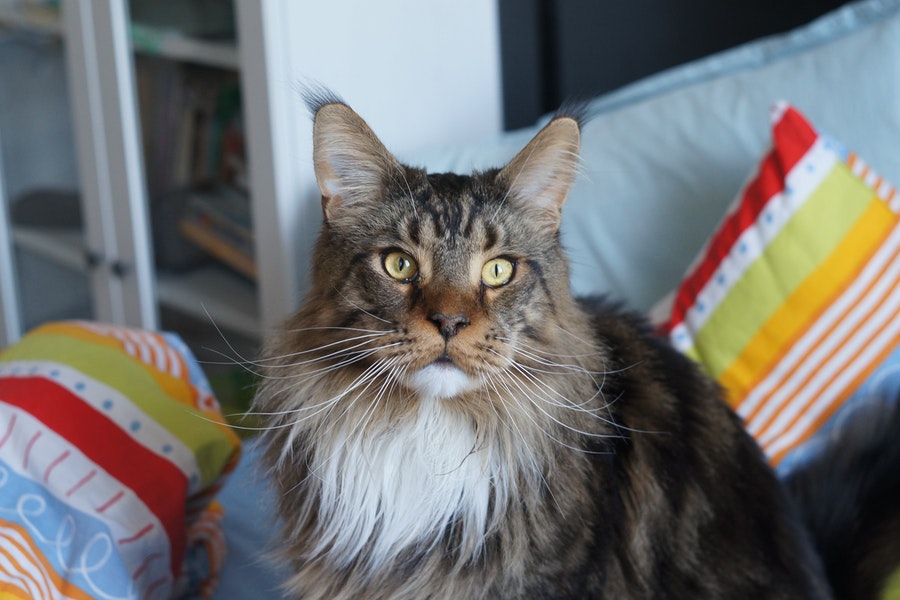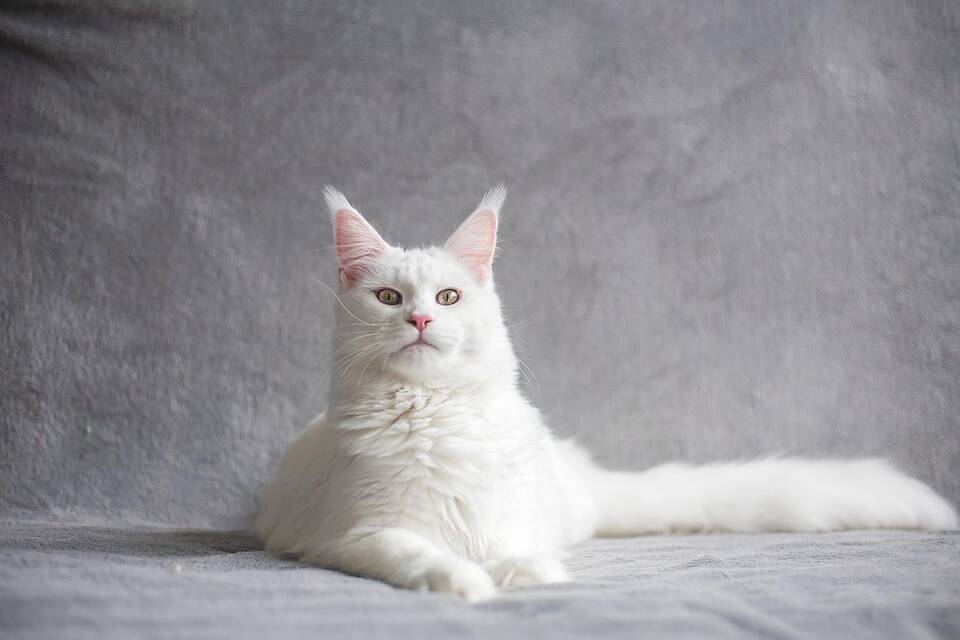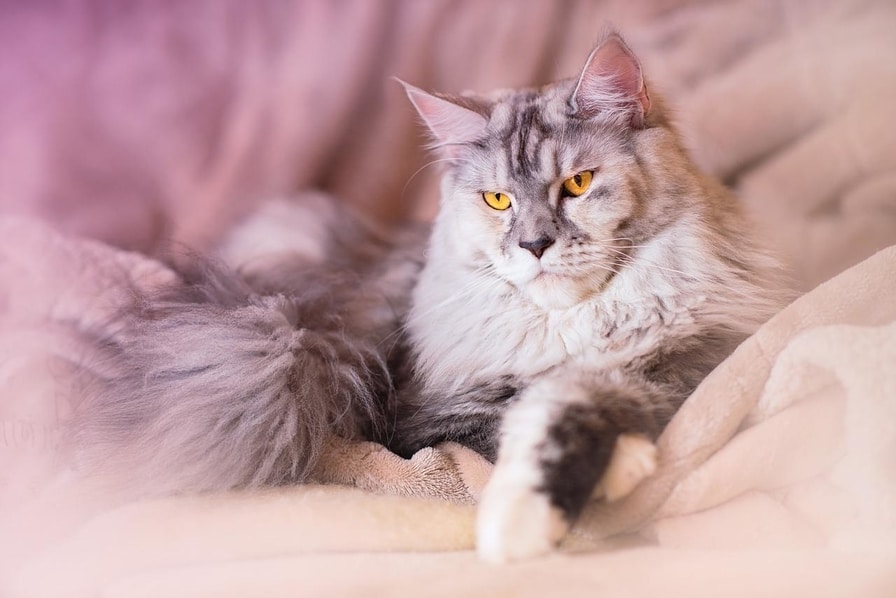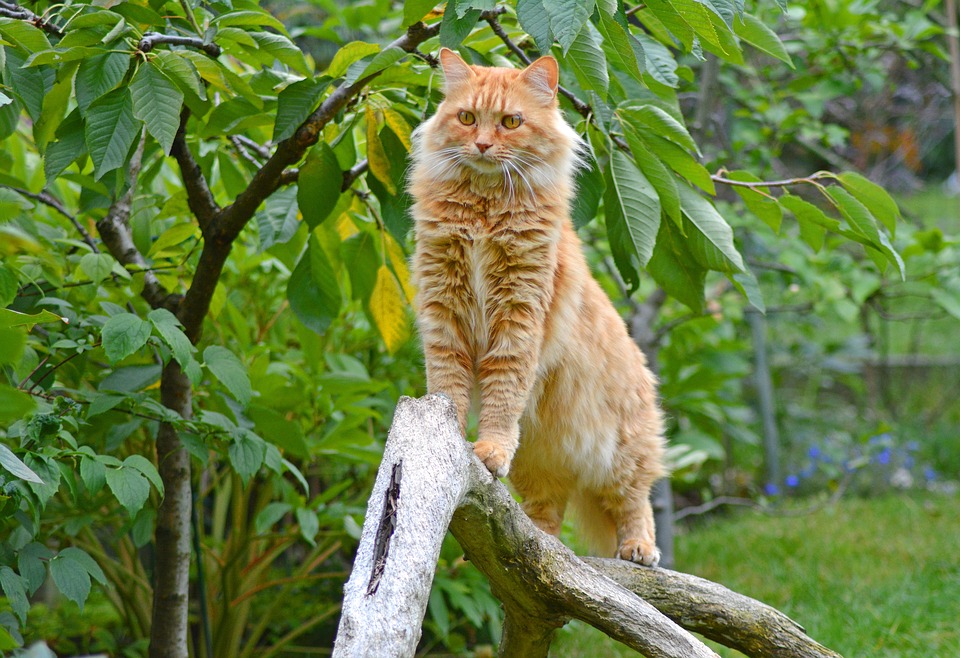Maine coon health issues are something that all pet owners should be aware of. These beautiful cats can suffer from a number of health problems, which is why it’s important to know what to watch for.
In this blog post, we’ll discuss some of the most common health issues faced by Maine coons, and we’ll provide tips on how to help keep your cat healthy and happy.
Some of the common health issues that Maine Coons are predisposed to are Hip Dysplasia, Spinal Muscular Atrophy, Stomatitis, Polycystic Kidney Disease, Hypertrophic Cardiomyopathy, Periodontal Disease, obesity, and lymphoma.
Lymphoma
Lymphoma is the most common form of cancer that affects Maine Coon cats.
It’s a type of cancer that affects white blood cells called lymphocytes.
The cause is unknown, but it’s more common in older cats. Cancer can spread to lymph nodes and other parts of the body.
Clinical signs are varied – some might have enlarged lymph nodes, while others will show no symptoms at all.
Cats with advanced stages of this cancer may experience lethargy, weight loss, lack of appetite, or visible tumors.
Advanced Lymphoma Stage
Treatment depends on the stage of the disease when it’s detected. The earlier it is found out the better because there are more treatment options available for early-stage cases including chemotherapy drugs that use targeted therapies to kill cancer cells without destroying healthy tissues.
In later stages, there are fewer options so treatment becomes palliative meaning it won’t cure them but can prolong life or reduce suffering.
In late-stage cases, cats may need to stay in the hospital for a few days so they can receive fluids, pain medications, and other treatments.
Maine Coon Hip Dysplasia
Hip dysplasia is a condition in which the hip joint is malformed. This can cause pain, stiffness, and lameness in the affected cat.
It’s most commonly seen in larger breeds of cats, like the Maine Coon.
Usually, the cat’s owners can tell that there is a problem when the cat gets to be about one year old.
The cat will lose its desire to jump and show lameness in its back legs. It may also have trouble lying down, jumping off of furniture, or climbing stairs.
Hip Dysplasia Signs And Symptoms
Some of the symptoms of hip dysplasia in cats include:
- Stiffness, especially after waking up from a nap
- Reluctance to jump or climb stairs
- Lameness or dragging of the affected leg
- Pain when touched along the affected leg
- Reluctance to stand on hind legs or climb stairs
- Persistant licking and chewing at the hip area
Oftentimes, Maine Coon’s hip dysplasia is only discovered after an x-ray is taken. In mild cases, cats only have a slightly abnormal hip joint.
Moderate cases can involve cats experiencing another health issue where their femur doesn’t fit well into the hip joint.
In severe cases, they experience health issues where bones in the hip joint don’t develop correctly.
Explore more about hip dysplasia in Maine Coons.
Hypertrophic Cardiomyopathy
Hypertrophic cardiomyopathy (HCM) is a heart disease that affects Maine Coon cats. It is the most common genetic heart disease in cats, and it occurs when the walls of the cat’s left ventricle (the chamber of the heart that pumps blood to the rest of the body) thicken.
This makes it more difficult for the left ventricle to pump blood out of the heart, which can lead to heart failure.
HCM can be present in cats at birth, or it can develop later in life. Symptoms include shortness of breath, rapid breathing, fatigue, and exercise intolerance.
HCM Symptoms Listed
Some of the symptoms of hypertrophic cardiomyopathy in Maine Coon cats include:
- Coughing or labored breathing
- Lethargy or changes in behavior
- Weight loss due to decreased appetite
- Fatigue, weakness, or paralysis
- Swollen abdomen due to fluid build-up
Left untreated, HCM can lead to heart failure and death. You can find out more about hypertrophic cardiomyopathy in Maine Coons in our article.
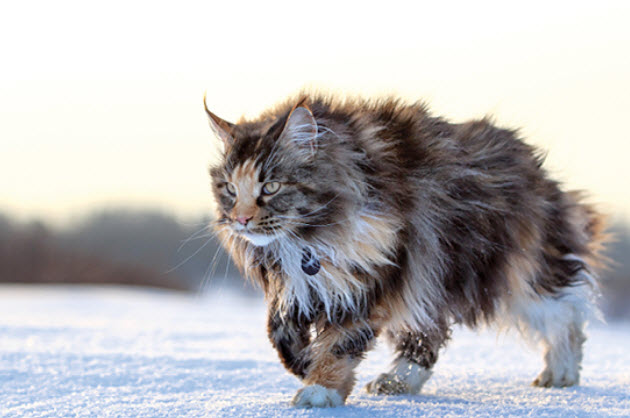
Spinal Muscular Atrophy
Spinal muscular atrophy (SMA) is a progressive neuromuscular disease that affects cats.
It is caused by the degeneration of the spinal cord’s nerve cells, which leads to a loss of muscle function.
SMA is most common in young cats, but it can also affect older cats.
Symptoms of SMA include muscle weakness and atrophy, paralysis, and difficulty breathing.
Cats with SMA eventually lose the ability to walk, eat, and breathe on their own, and they usually die from respiratory failure.
There is no cure for SMA. Unfortunately, there is no actual medical treatment either but there’s things you can do to help make our cat more comfortable.
Check out our article if you want to learn more about SMA in Maine Coons.
SMA Signs And Symptoms
Most kittens who are born with SMA show no signs of the disease.
The first sign of SMA in cats is usually when the cat begins to lose muscle mass and strength.
Other symptoms of SMA include:
- Muscle weakness, especially in the hind legs
- Inability to walk, stand, or climb stairs
- Loss of bladder and/or bowel control leading to Maine Coon diarrhea
- Loss of ability to regulate body temperature (hypothermia)
- Respiratory problems, such as difficulty breathing and shortness of breath
- Increased susceptibility to infections due to a weakened immune system
Stomatitis
Stomatitis is a condition that causes inflammation and irritation of the mouth.
It can be caused by a variety of things, including viral or bacterial infections, dental problems, allergies, and mouth sores.
Stomatitis can cause a cat to lose weight due to a decreased appetite, and it can also lead to mouth pain, difficulty swallowing, and drooling.
Signs And Symptoms
Symptoms of stomatitis in cats include:
- Inflammation in and around the mouth
- Redness of the gums
- Ulcers in the mouth
- Drooling
- Difficulty eating or drinking
- Weight loss
If your cat has stomatitis, it is important to take him or her to the veterinarian for treatment. The veterinarian will likely prescribe antibiotics or anti-inflammatory medications to help relieve the inflammation and irritation.
He or she may also recommend treating the underlying cause of the stomatitis.
Periodontal Disease
Periodontal disease is a common problem in Maine Coons that can lead to tooth loss and other health problems. The disease is caused by bacteria that collects on the teeth and gums, causing inflammation and infection.
Symptoms of periodontal disease include bad breath, red and swollen gums, bleeding gums, and tooth loss.
The disease can also lead to other health problems, such as heart disease, kidney disease, and liver failure.
Periodontal disease can be treated with a dental cleaning under anesthesia, followed by regular brushing and flossing at home.
There are three stages of periodontal disease: halitosis, gingivitis, periodontitis.
Halitosis
Halitosis, or bad breath, is a common problem in cats that can be caused by a number of things, like periodontal disease, stomatitis, and tooth decay.
Signs and symptoms of halitosis in cats include bad breath, red and swollen gums, bleeding gums, and tooth loss.
The disease can also lead to other health problems, such as heart disease, kidney disease, and liver failure.
Gingivitis
Gingivitis is the mildest stage of periodontal disease and is caused by bacteria that collects on the teeth and gums.
Symptoms of gingivitis include red and swollen gums, bleeding gums, and bad breath.
Periodontitis
Periodontitis is a more advanced stage of periodontal disease that is caused by bacteria that collects on the teeth and gums.
Symptoms of moderate periodontitis include red and swollen gums, bleeding gums, and bad breath.
Periodontal disease can be treated at cleaning under anesthesia followed by regular brushing and flossing at home.
So make sure you keep their kitty teeth clean.
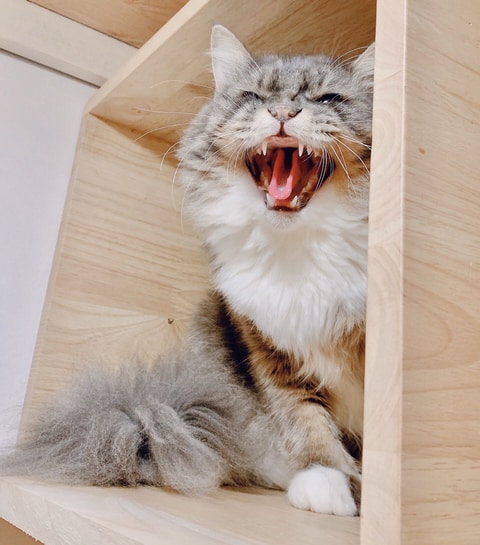
Polycystic Kidney Disease
Polycystic kidney disease (PKD) is a genetic disease that affects the kidneys. The disease causes the kidneys to become enlarged and covered in numerous cysts.
Symptoms of PKD include weight loss, increased thirst and urination, vomiting, and diarrhea.
The disease can also lead to other health problems, such as heart disease and liver failure.
There is currently no cure for PKD, but there are treatments available that can help to prolong the life of a cat with the disease.
Treatment options include medications to control symptoms and surgery to remove the cysts from the kidneys.
Symptoms of Polycystic Kidney Disease
The signs and symptoms of PKD vary depending on the stage of the disease. Early-stage PKD may not cause any noticeable signs or symptoms.
As the disease progresses, however, the Maine Coon will likely begin to show some of the following signs and symptoms:
- Weight loss
- Poor appetite
- Increased thirst
- Increased urination
- Lethargy
- Swelling of the limbs
Treatment of polycystic kidney disease is often limited to diet management.
Obesity
Obesity is a common problem in Maine Coon cats that can lead to a number of health problems, including diabetes, joint problems, and other issues.
Another problem is that owners know their Maine Coon should grow big so they are expecting their cat to grow huge, oftentimes as fast as possible.
This can quite often lead to overfeeding as owners just want their Maine Coon to grow into the gentle giant it’s supposed to be.
A cat is considered obese if it is more than 20% over its ideal body weight. Obesity is often caused by a combination of overfeeding and lack of exercise.
The best way to treat obesity in cats is through diet and exercise. A diet that is low in calories and high in fiber is the best way to help a cat lose weight.
Exercise is also important and can be as simple as playing with your cat or taking it for a walk outside.
Related Content: Do Maine Coons have skin problems?
Conclusion
To conclude, now you’ve got the lowdown on each health issue Maine Coon cats are predisposed to.
There are several, so make sure to take your fur baby to the vet for regular health checkups just to be safe.
Always keep an eye on what they eat and make sure to regularly play with your Maine Coon to keep them fit and active.
Elliot is the owner and lead writer at Lais Lairs. He is the proud owner of a Maine Coon/Siberian Mix cat named Lai. His oldest cat lived to be 18 years old so he’s learned a thing or two about keeping pets. When he’s not writing you can find him playing video games or playing fetch with Lai.
